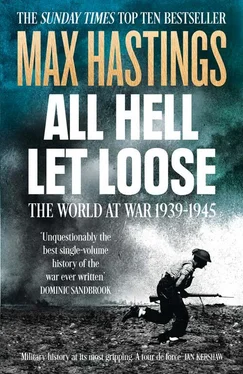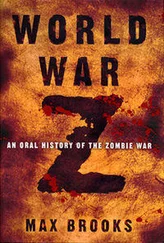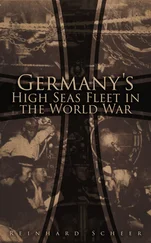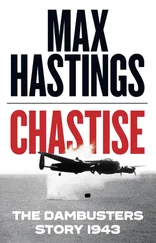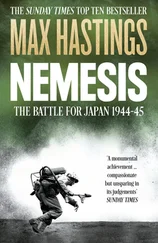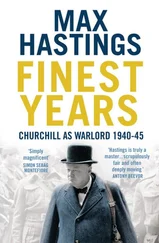1 ...6 7 8 10 11 12 ...16 And he, when the city was just a raw, red mass
Said: ‘I do not surrender.’ Let the houses burn!
Let my proud achievements be bombed into dust.
So what, if a graveyard grows from my dreams?
For you, who may come here, some day recall
That some things are dearer than the finest city wall.
By the end of the campaign’s third week, Polish resistance was broken. The capital remained unoccupied only because the Germans wished to destroy it before claiming the ruins; hour after hour and day after day, merciless bombardment continued. A nurse, Jadwiga Sosnkowska, described scenes at her hospital outside Warsaw on 25 September:
The procession of wounded from the city was an unending march of death. The lights went out, and all of us, doctors and nurses, had to move about with candles in our hands. As both the operating theatres and the dressing stations were destroyed the work was done in the lecture rooms on ordinary deal tables, and owing to the lack of water the instruments could not be sterilised, but had to be cleansed with alcohol…As human wreckage was laid on the table the surgeon vainly attempted to save the lives that were slipping through his hands…Tragedy followed tragedy. At one time the victim was a girl of sixteen. She had a glorious mop of golden hair, her face was delicate as a flower, and her lovely sapphire-blue eyes were full of tears. Both her legs, up to the knees, were a mass of bleeding pulp, in which it was impossible to distinguish bone from flesh; both had to be amputated above the knee. Before the surgeon began I bent over this innocent child to kiss her pallid brow, to lay my helpless hand on her golden head. She died quietly in the course of the morning, like a flower plucked by a merciless hand.
Professional soldiers can seldom afford to indulge in emotionalism about the horrors of war, but posterity must recoil from the complacency of Germany’s generals about both the character of their national leader, and the murderous adventure in which they had become his accomplices. Gen. Erich von Manstein is widely regarded as the finest German general of the war; afterwards, he took pride in pretensions to have done his part as an officer and gentleman. However, his writings during the Polish campaign, as well as later, reveal the insensitivity characteristic of his caste. He was delighted by the invasion: ‘It’s a grand decision of the Führer in view of the attitude of the Western Powers up till now. His offer to solve the Polish question was so obliging that England and France – if they really wanted peace – should have pushed Poland into accepting.’ Soon after the campaign began, Manstein visited a formation which he himself had recently commanded: ‘It was touching to see the staff so pleased when I suddenly appeared…Cranz [his successor] told me it was a pleasure to command such a well-trained division in war.’
In a letter to his wife, Manstein described his personal routine during the campaign, in which he served as von Rundstedt’s chief of staff at Army Group South: ‘I get up at 6.30, plunge into the water [for a swim], into the office by 7.00. Morning reports, coffee, then work or trips with R[undstedt]. Midday, field kitchens here. Then half an hour break. In the evening after supper, which we eat together with the general staff officers as at lunch, the evening reports come in. And so it goes on to 11.30.’ The contrast is stark, between the serenity of army headquarters and the vast human tragedy its operations had precipitated. Manstein signed an order for the German forces encircling Warsaw to fire upon any refugees who attempted to leave: it was deemed easier to force a swift outcome of the campaign, and to avoid a battle in the streets, if the inhabitants were unable to escape the capital’s bombardment. Yet he was a man of such personal fastidiousness that he sometimes quit rooms in which von Rundstedt was speaking, because he recoiled from his chief’s obscene language. On 25 September, he basked in a congratulatory visit from Hitler, writing to his wife: ‘It was nice to see how the soldiers rejoiced everywhere as the Führer drove past.’ In 1939, the officer corps of the Wehrmacht already displayed the moral bankruptcy that would characterise its conduct until 1945.
A Polish cavalry officer, Klemens Rudnicki, described the plight of his regiment and its beloved mounts in Warsaw on 27 September, the last night before the city fell: ‘Red, glittering flames illuminated our horses, standing quiet and motionless along the walls of the Łazienki Park, resembling saddled skeletons. A few were dead; some were bleeding, exposing huge, gaping wounds. Kowalski’s horse Cenzor was still alive, but lay with his bowels ripped out. Not long ago he had won the Army’s Challenge Cup at Tarnopol. He had been our pride. A shot in the ear ended his sufferings. Next day, probably, somebody needing to assuage his hunger would cut a joint from his loins.’
Warsaw capitulated on 28 September. Little Captain Krysk of Rudnicki’s 3rd squadron declared emotionally that he rejected the order: ‘Tomorrow morning we shall charge the Germans to preserve the regimental tradition that the 9th Lancers never surrender.’ Rudnicki dissuaded him; together, the regiment’s officers secreted their colours in the church of St Anthony on Senatorska Street, the only building still intact amid acres of rubble. Rudnicki reflected ruefully that the Polish army should have deployed in depth for a protracted defensive action, instead of manning a weak forward line that was certain to be broken. This, however, would have been ‘at variance with our natural aspiration – and with our military traditions and hopes of becoming a great Power’.
On 29 September the Modlin army north of Warsaw surrendered to the Germans, who took 30,000 prisoners. Organised resistance petered out, the Hel peninsula falling on 1 October; the last recorded engagement took place at Kock, north of Lublin, on the 5th. Hundreds of thousands of men fell into German hands, while many more struggled to flee. Young flier B.J. Solak was moved to encounter an air force colonel sitting beneath a tree, tears pouring down his face. Feliks Lachman was one of many Poles whose thoughts reverted to their recent reading of Gone with the Wind. Fleeing his home, he mused: ‘Desolate as was the Tara estate, Scarlett O’Hara was going through fire and water to the place where she knew she belonged. We had left, once and forever, men and things that formed the social, intellectual and emotional environment of our life. We were moving in a vacuum, aimlessly.’ After an air raid on the city of Krzemieniec, Adam Kruczkiewicz saw in the street a hysterical old Jew, ‘standing over the corpse of his wife…uttering a string of curses and blasphemies, shouting “There is no God! Hitler and the bombs are the only gods! There is no grace and pity in the world!”’
A few Polish cavalry units made good their escape into Hungary, where they surrendered their arms. At the barracks of the 3rd Hungarian Hussar Regiment, exhausted fugitives were moved to find themselves greeted by the unit’s officers, led by the elderly Colonel von Pongratsch, drawn up in full ceremonial uniform. A few days later, when the Poles left to face internment, the bewhiskered veteran embraced each one before bidding them farewell. Such old-world courtesies were welcome, because they had been banished from the pitiless universe of which most Poles now found themselves inhabitants.
Gen. Władysław Anders led his exhausted and depleted unit eastwards to escape the Germans. The men sang as they urged on their emaciated horses amid a throng of refugees and military stragglers. Then they met the Red Army, and Anders sent a liaison officer to the local Soviet headquarters to beg safe passage to the Hungarian border. The Pole was stripped of all he had, and threatened with execution. Russian guns began to shell the Polish positions. Anders ordered his men to split into small groups and find their own way into Hungary. He himself, badly wounded, was captured along with many others. A Russian officer told him complacently: ‘We are now good friends of the Germans. Together we will fight international capitalism. Poland was the tool of England, and she had to perish for that.’
Читать дальше
